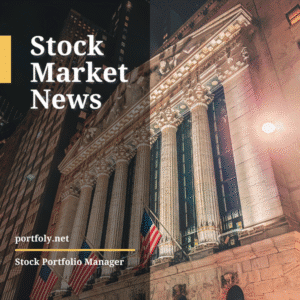Understanding Costco Wholesale’s Stock Potential in 2025
Costco Wholesale (NASDAQ: COST) has solidified its reputation as a leading retailer, boasting a remarkable business model that attracts millions of consumers. As of September 2025, Costco’s stock price is at $943.74 with a market cap of $418 billion, reflecting a slight decline of 0.78% for the day. However, what does this mean for potential investors? Let’s delve into whether Costco is a buy, sell, or hold.
A Strong Business Model
Costco has been a standout performer in the retail sector. Over the past decade, the stock has surged by 570%, significantly outperforming the S&P 500’s increase of 240%. This success is attributed primarily to Costco’s defensive nature as a consumer staples company, which focuses on essential products such as groceries, health, and beauty items.
The company thrives on its bulk-buying strategy, offering low prices which draw consumers regardless of the economic climate. Furthermore, Costco’s model heavily relies on membership fees, which generate a significant portion of its income while maintaining competitive pricing on its products. The company’s renewal rate remains impressively high at 93% in North America.
Current Performance vs. Market Trends
Despite historical success, Costco’s stock has shown a mere 4% increase this year as of mid-September, indicating a recent pullback from its peak. This raises the question: Is it a good time to invest? Let’s weigh the options:
- Buy Costco: Costco’s consistent customer satisfaction and robust membership growth highlight its strong market position. The ongoing expansion of new stores both domestically and internationally, along with growth in e-commerce, supports the notion that Costco will continue to thrive.
- Sell Costco: Currently, Costco’s stock is trading at a price-to-earnings ratio of 54, which is quite high compared to other retailers. This valuation suggests that much of the company’s growth has already been factored into the stock price, making it an expensive investment at present.
- Hold Costco: For long-term investors, Costco remains a classic buy-and-hold stock. Its proven resilience against market fluctuations makes it a likely candidate for sustained growth. However, the elevated valuation means it may not be the best time to initiate new investments.
Conclusion
In summary, Costco’s reliable business model and strong growth trajectory solidify its status as a long-term investment candidate. While current market conditions may suggest holding off on new purchases due to high valuations, existing investors may want to maintain their positions for future growth potential. For continuous updates and insights into market conditions, consider visiting Stock Market News. Additionally, if you’re looking for a reliable stock portfolio management service that targets 20% growth per year, check out Stock Portfolio Management.


